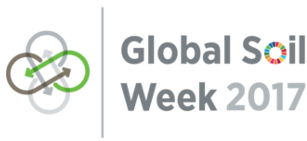67 percent of Africa’s land is subject to degradation. This has reduced crop yields and puts at risk food security and economic development. Poor rural populations are particularly affected as they largely depend on the land for their livelihoods. Climate change is expected to increase their vulnerability even more.
But how can land degradation be mitigated or reversed? How can livelihoods of the rural poor be improved? A new joint research project by the International Center for Tropical Agriculture (CIAT) and the Institute for Advanced Sustainability Studies (IASS) is addressing these questions. With a focus on Tanzania and Malawi, the project “AGORA: Acting Together now for Pro-poor Strategies against Soil and Land Degradation” will explore how to:
- Enable land and resource users to apply sustainable land management (SLM) strategies produced through multi-stakeholder processes (MSPs)
- Promote and establish a process by which marginalized groups are empowered to work together with decision-makers and other stakeholders to design more equitable solutions to land degradation and development problems
- Provide evidence to decision-makers and facilitate its use to take better informed decisions.
- New pathways through transdisciplinary research
AGORA approaches the issue in a comprehensive way at the landscape level – this is unique and provides avenues for addressing the limitations and failures of past efforts that addressed land degradation. The project will capitalize on the existing knowledge on sustainable land management (SLM) and at the same time focus on the barriers to the adoption of SLM practices. By working together with different stakeholders, the political, social and economic constraints under which SLM practices are applied will be identified. Biophysical aspects will be integrated as well through assessments of the land degradation, an analysis of current and future climate conditions.
To raise awareness of decision makers and policy makers, AGORA will conduct an economic assessment of ecosystem services. This will demonstrate the costs of inaction on SLM. This will contribute to the Economics of Land Degradation (ELD) Initiative.
The IASS will be involved in the design of several outcomes and ensure the transdisciplinarity in research approaches. The IASS will also provide expertise and carry out
- The analysis of the implementation of government policies on land-use as well as of the relations between all stakeholders in the project area in rural Tanzania and Malawi
- The design, implementation and use of multi-stakeholder platforms to vision future scenarios for landscapes, integrate biophysical modeling with local understanding and identify governance scenarios for addressing challenges to sustainable land management.
- The use of analytical and participatory tools for deploying transdisciplinary research on sustainable land management in the project area
Project duration: 3 years (March 2014-March 2017)
Funded by: German Federal Ministry for Economic Cooperation (BMZ), Deutsche Gesellschaft für Internationale Zusammenarbeit (GIZ)
Partners:
- International Center for Tropical Agriculture (CIAT)
- Selian Agricultural Research Institute (SARI),Tanzania
- Total Land Care (TLC), Malawi
- Bunda College (BC) at Lilongwe University of Agriculture & Natural Resources (LUANAR), Malawi
Contact:
Jes Weigelt
Coordinator Global Soil Forum
Institute for Advanced Sustainability Studies (IASS)
Phone: +49 331 28822-319
Email: Jes.Weigelt@iass-potsdam.de
